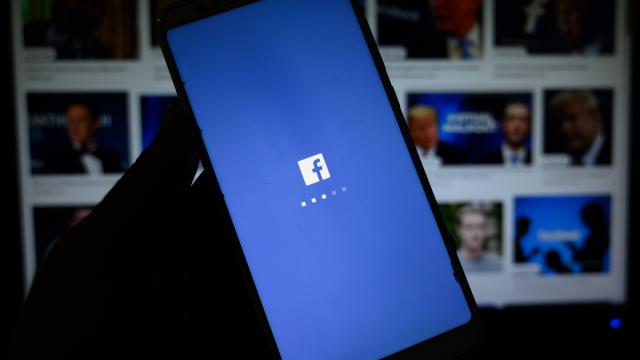Disinformation campaigns on Facebook and Twitter are influencing Australia’s political elections, a senate inquiry has heard.
The inquiry, which is looking into the impact of the spread of disinformation by fake social media accounts, was told that foreign actors were to blame. The campaigns were found to be linked to Kosovo, Albania and the Republic of North Macedonia in Europe’s southeast.
Analysts from the Australian Strategic Policy Institute (ASPI), a defence and strategic policy think tank, appeared at the public hearing to discuss how broad-scale the disinformation attempts had been. It cited two investigations by the ABC and The Guardian.
[related_content first=”1202055″]
The analysts submitted a document to the senate inquiry in March, highlighting how disinformation actors were profiting off spreading Islamphobic content during the election period.
“A combined audience of 130,000 Facebook users across four Facebook pages were steered off the platform towards content farms that generated advertising revenue from each page view,” the submission read.
“These activities have the potential to skew Australia’s political discourse, influence voting behaviour and affect electoral outcomes.”
Fighting a tidal wave of disinformation may seem like an impossible feat but the ASPI analysts had a few ideas on how to solve the issue. Their recommendations include three primary tenets — transparency, oversight and awareness.
The first requires platforms, like Facebook and Twitter, to provide policy information on their moderation and enforcement efforts. It also recommends the establishment of a new independent body that would oversee how social media sites “filter, block, amplify or suppress” content.
“Crucially, these obligations should be placed on all social media operating in Australia, including those companies that originate from authoritarian regimes and those fringe platforms servicing niche communities — not just the dominant Western platforms such as Facebook, Twitter, Instagram and Snapchat,” the submission said.
Finally, the recommendations suggested additional funding be given to an independent civil society, which could provide tools and resources for the public to stamp out disinformation campaigns.
Highlighting disinformation campaigns is paradoxical
Earlier in the hearing, Evelyn Douek, an online information expert at Harvard’s Berkman Klein Center For Internet & Society, told the inquiry talking about disinformation campaigns further fuels them. Douek said the success of these sorts of disinformation campaigns was actually highly debatable.
“What a lot of these campaigns seek to do is to sow the idea of distrust and apathy about public discourse more generally. If you can’t know what is true, and if you can’t trust information sources, why bother engaging with it at all, and obviously, that’s highly destructive to the idea of democratic self governance and engagement by actors,” Douek said.
“That’s why it’s important to not overstate the threat of these covert operations, because that, in the end, helps these actors achieve exactly the kind of aims they’re trying to achieve.”
Douek said while the simple action was to delete the offending content, it wasn’t the most effective way to combat it. Instead, other tools like labelling shared content, fact checking, reducing circulation and adding friction so content can’t go viral as quickly might be better methods to consider.
Ultimately, however, Douek recommends boosting the capacity of Australia’s media with fact checkers to debunk nefarious campaigns rather than leaving it up to Facebook.
“By simply outsourcing the job of deciding what is true or false to platforms, we are not empowering Australian citizens,” Douek said.
“I think things like fact checking and building up the capacity in Australia and the number of fact checkers and support for Australian media and independent reporters is really an important part of empowering citizens to access their own information rather than outsourcing the role of arbitrating public debate to these private American companies.”
The inquiry will continue to hear from interested parties and is expected to deliver its final report by May 2022.
[related_content first=”1199074″]
